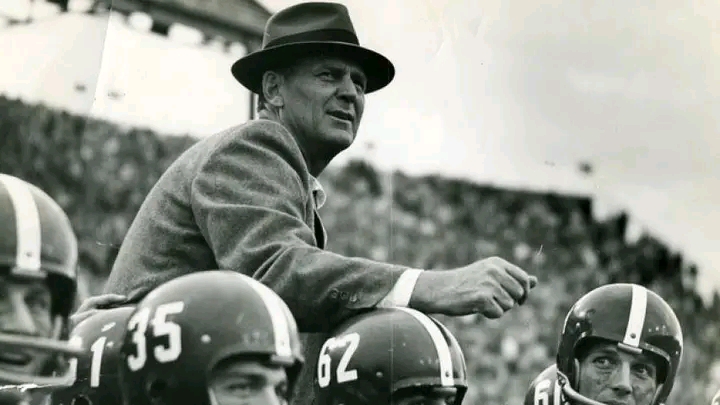Bear Bryant is widely regarded as one of the greatest college football coaches in history. Best known for his iconic houndstooth hat and his commanding presence on the sidelines, Bryant etched his name into sports history during his remarkable 25-year tenure as the head coach of the University of Alabama Crimson Tide from 1958 to 1982. What he accomplished during that time remains the standard for excellence in college football.
When Bryant took over at Alabama in 1958, the program was in disarray, having suffered through years of mediocrity. But he swiftly turned things around with his uncompromising discipline, tough love, and demand for perfection. Under his leadership, Alabama would go on to win six national championships (1961, 1964, 1965, 1973, 1978, and 1979) and 13 Southeastern Conference (SEC) titles, establishing itself as a powerhouse in collegiate football.
Bryant’s coaching philosophy was rooted in physical toughness, mental discipline, and total commitment. He was known for pushing his players to their limits, yet many of them later spoke of how his influence helped shape their character, both on and off the field. His famous “Junction Boys” training camp at Texas A&M before coming to Alabama is still referenced as one of the most grueling in football history—a testament to his unrelenting expectations.
Over his 38-year coaching career, Bryant compiled a staggering 323 career wins, a record at the time of his retirement, making him the winningest coach in college football history until it was later surpassed. But perhaps more important than the numbers was the legacy he left behind: a tradition of excellence, a fierce pride in Alabama football, and a model of leadership that continues to influence coaches today.
Bear Bryant retired after the 1982 season and tragically passed away just weeks later, in January 1983. His death marked the end of an era, but his legacy remains immortalized at the University of Alabama and throughout the sport. The Paul W. Bryant Museum, the Bryant-Denny Stadium, and countless tributes across the state of Alabama serve as enduring reminders of the man who not only coached football—but built a dynasty.
